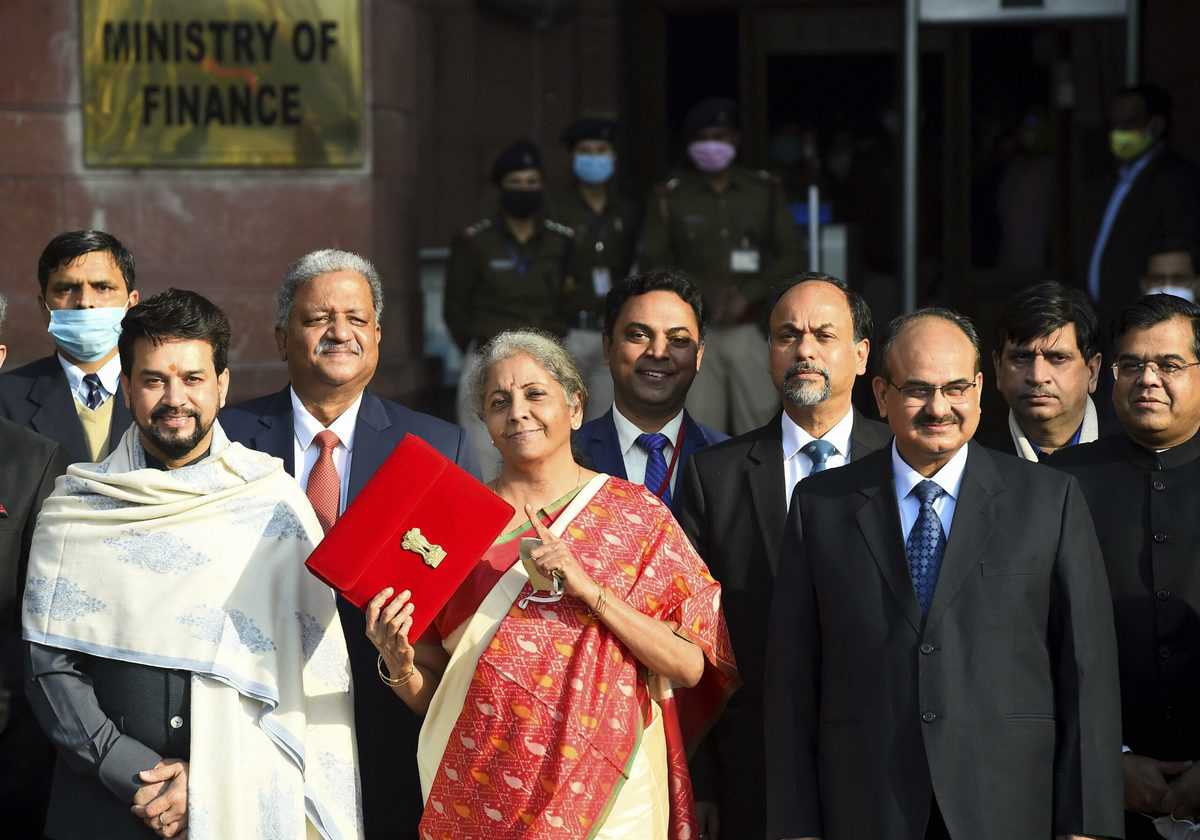Amir Ullah Khan
The Union budget is an Annual Financial Statement where the government of the day is expected to inform the Parliament of what it would spend its money on during the next year. This must be done diligently and responsibly, as with any financial matter of any scale. The country’s budget is huge, we will spend nearly 35 lakh crores next year and therefore it is expected that the FM would make clear announcements on what she plans for the country next year. Based on her outlays, we can then see where the focus of growth and development would be. It is important for all of us to understand not only the various expenditure heads, but also the revenue mobilisation that will bring in the money required to fund the outlays. The various allocations also indicate the direction in which the country is headed.
As the FM spoke, it was clear that she was giving great deal of attention to the health sector, and rightly so. It has been a bad year for all of us, during which we have seen large number of patients die waiting for hospital beds, ICUs and Oxygen cylinders. It was along expected lines therefore that the FM speaks of health being her biggest responsibility. She also announced a figure of 2.4 lakh crores for the health sector, which was unprecedented. However, when we look at the details, we find that the figure is less than half of that. At a time when the healthcare sector needed a huge hike in expenditure, the FM decided to ignore the demands.
The intent of the budget is to achieve GDP growth through growth in infrastructure investment which is academically correct. However this has come with a jump in the fiscal deficit. The impact of this could be an increase in inflationary pressures in the economy, which could adversely impact the ability of the country to attract foreign capital. The budget has not addressed the needs of the MSME sector or the migrant labor issues. The philosophy behind the budget is academically correct but execution will remain a major challenge.
A number of academics have expressed their mixed feelings on the Union Budget tabled in Parliament on 01-02-2021. A big push on infrastructural investments is welcome. Past trends in private corporate investments is any indicator to go by, it is very clear that unless public investment is initiated, corporate investment may not follow the suit. The projected “V” shaped recovery is appearing more exaggerated than ground realities which are depressing
Given the backdrop of Pandemic and economy contracting across the globe, it was a tough task for the Indian Budget in the unprecedented times. Some of the key standouts in the budget have been the intention to focus on Health care, Capital and Infrastructure. While there has been no increase in tax rates, these has been rationalization in procedural aspects of GST, including removal of audit and reconciliation with the financial statements and emphasis on self-certification basis broadening the scope of Supply, Input Tax credit claim based on supplier invoices, interest on net output liability, penalty in case of E Way bill default to 200% and other transactions related to SEZ operations. The stock markets reacted positively due to budget focus on Infrastructure spending, Health Care and Banking and Insurance. Opening up the Budget overall is a capex related budget which talks more about roads, ports and building structures. This will certainly translate the revenue in the future years to come. Further the disinvestment of LIC etc. is also a welcome move, where more laws will make the action of these companies disciplined and strict. A thrust on agriculture and rural development was much expected but the budget did not address these. It was widely expected the financial year to be made as calendar year for the purpose of taxation, so that it will be in line with the International standards.
Both the income tax and GST rates were left unchanged. However, targeted revenue collection is expected to achieve targets through stringent recovery mechanism assisted by Artificial Intelligence (AI) and Data Analysis tools. The government will regulate transactions more closely in order to eliminate tax evasion. This budget has not reduced the rates which would have enabled spending power for common man and thereby ensuring increase in consumption. Further, it is unfortunate that the budget has not addressed the needs of Telangana state as there is no mention of any projects here.
It is important to realise the importance of the budgetary exercise in a country that is transitioning from low income to middle income levels. The budget becomes an important tool in the hands of the state to enable inclusive growth and deliver services to the most marginalized and the vulnerable. Given the shocks that the Indian economy has been facing over the last four years, a robust intervention on part of the government would help rebuild the economy and assure health, education and employment to the vast numbers that have been impacted by COVID-19 and the economic slump since 2016.
Given the value of this exercise, it is important for the FM to clarify and clear all doubts. This year’s budget has however not stood that test. It has been frugal on many heads, especially that matter now. One of them is the health sector. The next is the farm sector where the protests have been growing louder and louder. The budget shows a clear disdain for these sectors. It focuses on building infrastructure and expects that poor and the sick to take of themselves. When we expected was a development oriented budget, we have been told that the budget will support those who already have money and are the privileged class.
@khanamirullah
Skype amirullahkhan Mob: 9871322477
Amir Ullah Khan is a researcher at Centre for Development Policy and Practice (CDPP) based in Hyderabad.

